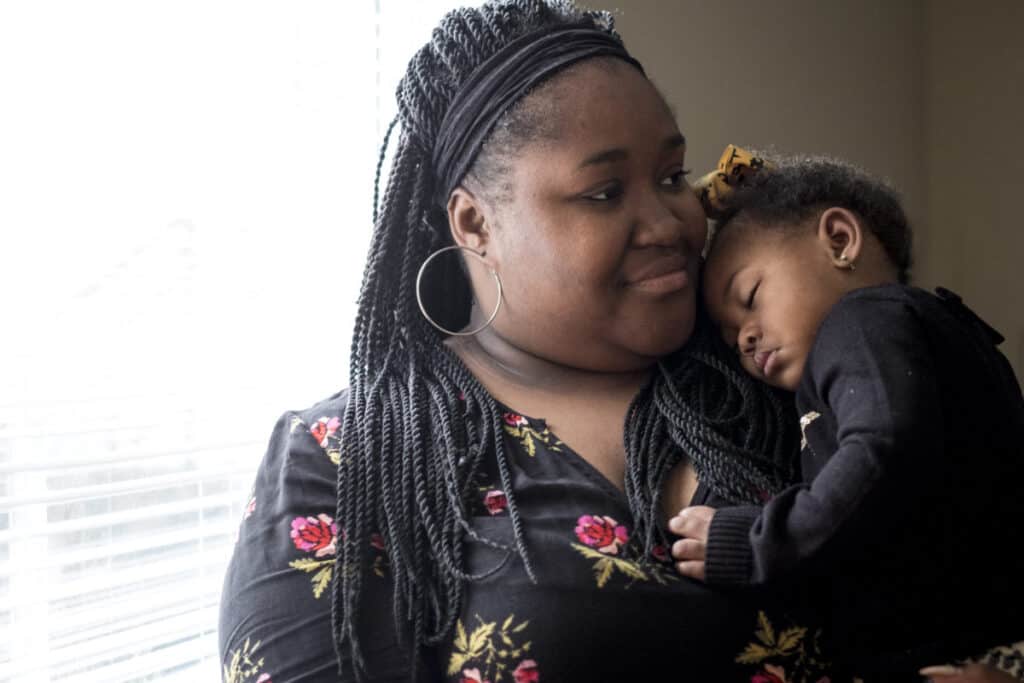As children grow, they learn new skills. This is called development, and the moments when they grasp a new skill, like walking or learning to feed themselves, are called child development milestones.
As parents and caregivers, we watch our children’s development carefully and we celebrate when they hit a new milestone, but we often have questions about what’s “normal.” This is especially true with our first children, but even children in the same family can develop in different ways. So it can be a challenge for parents to understand if we’re just seeing children develop in different ways or if our child needs some extra support in their development.
Here’s a story we heard from a parent of three children:
“Both of my older daughters talked in full sentences early on and started walking just before they turned 13 months. My third daughter started walking at ten months! I think she was trying to keep up with her sisters. But at 15 months, she was only saying a few words. I thought something was wrong and so I took her to the doctor. But it turned out her language was right where it should be. She was just on a different kind of growth curve than her sisters.”
How can we tell if their child development milestones are on track?
The skills children learn as they grow allow them to move around and interact with their world, connect emotionally with other people, communicate their needs, and learn to take care of themselves.
Children develop at different rates, and this is normal. We use milestones like walking and talking to measure development at each age and understand whether our children are on track.
One 2-year old might be talking in complete sentences, while another mainly points to or shows you what they want without many words. All of these children are developing at normal rates.
But if a child is not saying any words by the age of 2, then something might be wrong. They may have a developmental delay, which means they are not doing certain things at the age when kids usually do those things.
Parents often worry that their child has a developmental disability. And this is possible!
But sometimes children are late to develop certain skills because of their environment. For example, a child may not focus on books and point to things on the pages if the adults around them are not reading to them frequently. They can still learn these skills and catch up quickly.
Other children may have a physical issue that is causing the delay. For example, one common cause of speech delays is fluid in a child’s ears, which makes it difficult to hear. Many children catch up very quickly in spoken language once that is resolved.
Regardless of the reason, if the skills are delayed too much, it’s important to act.
Why is it important to identify a problem with my child’s development?
- Because there are things you can do! Early support is more likely to help your child catch up and avoid long-lasting problems.
- Once you suspect there is a problem, you can start connecting to support systems for your child and for yourself.
- If your child does have a delay or a disability, identifying this will help you get services for your child in school and in the community.
As our children develop, we look for 4 different kinds of skills
- Movement and physical development: This includes skills like holding up their head at 3 months old, sitting up at 9 months, and learning to use their finger and thumb to pick up food by about 1 year old.
- Cognitive (thinking, learning, and problem-solving): Skills like imitating a movement at 1 year old, or knowing where their nose and ears are at age 2.
- Language and communication: Skills like saying “ba-ba-ba-ba”at 9 months, or waving “bye-bye” at age 1.
- Social and Emotional: Skills like pointing to show you something interesting around 18 months, or watching your face to see your reactions at around 2 years old.
You can download the CDC’s Milestone Tracker App in English or Spanish to track your child’s development.
It’s important to understand child development milestones so you can understand if your child is on track. And it can be scary to realize your child is way behind on some of these milestones. But there are lots of supports that can help your child improve their developmental skills. Many kids who have developmental delays catch up to their peers with a little help. And many children with developmental disabilities live happy, successful lives.
Learn More:
Is my child different? Six steps to assessing your child’s development
Services that support children with disabilities (and their families)
What are Early Intervention services? Can they help my child?



